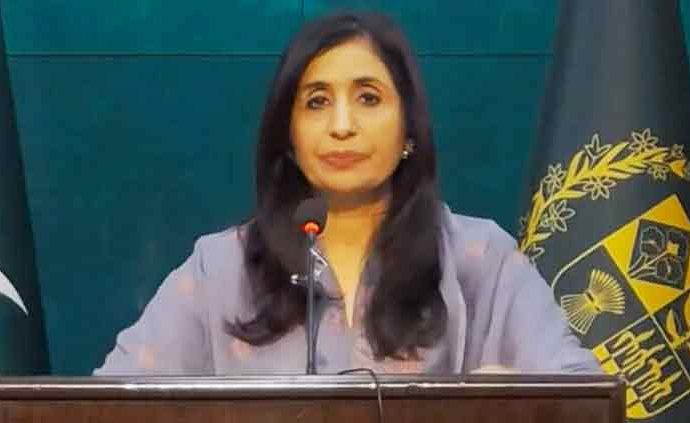ISLAMABAD – Mumtaz Zahra Baloch, a Foreign Office spokesperson, stated that “unnecessary” US restrictions on Pakistan’s missile development will have no effect on Pakistan’s defense or choices.
She emphasized unequivocally that Pakistan’s security decisions would be taken by the Pakistani people, and no external pressure will affect them. She described the US sanctions as unjustified and wrong, saying that such steps could not diminish Pakistan’s defense stance.
She noted how Pakistan has endured numerous sanctions in the past, but has always prioritized its security. The United States has no need to be concerned about the country’s missile development, she said.
Baloch stated that India initiated the regional weapons race. She asked the world’s powers to take strong action against India to put an end to it.
In response to the European Union’s worries over sentences handed down to civilians by military tribunals, the FO spokeswoman stated that Pakistan’s constitution and courts have the entire power to resolve domestic issues.
“The Pakistani nation knows how to resolve its internal issues, and there is no need for any external interference in it,” she told reporters.
Previously, the European Union condemned these rulings, calling them unfair and violating the ICCPR.
The EU spokeswoman stated that under the Generalised Scheme of Preferences Plus (GSP+), beneficiary countries, including Pakistan, have voluntarily committed to successfully implementing 27 fundamental international treaties, including the ICCPR, in order to maintain their GSP+ status.
Separately, during a news briefing in Peshawar, PTI Central Information Secretary Waqas Akram expressed similar concerns, claiming that military trials violate both international and domestic law.
He stressed that the EU spokesperson’s worries are “serious” and consistent with the PTI’s attitude, which was conveyed shortly after the news surfaced.
On December 20, Pakistani military tribunals condemned 25 people participating in the May 9 events to 2-10 years in jail for crimes against state institutions.


